
Discover how AI-powered patient intelligence is ushering in a new era of pharma leadership defined by clarity, speed, and knowing the “why” behind every shift.

Discover how AI-powered patient intelligence is ushering in a new era of pharma leadership defined by clarity, speed, and knowing the “why” behind every shift.

Understand how real-time patient intelligence transforms leadership conversations from speculation and opinion battles into confident, data-backed strategy.

Learn how outdated or incomplete insights turn every decision into a high-stakes gamble that cost brands money, momentum, and internal alignment.

David Edelman, Founder & CEO of Thrivable, provides an unflinching look at why today’s most relied-upon tools, including syndicated data, social listening, gut instinct, still leave leaders navigating with a blurry, incomplete map.

This episode acts as a peek inside the modern pharma boardroom, where leaders are expected to defend billion-dollar brands with data that’s too slow, too vague, and too outdated to survive today’s market velocity.

This series kicks off by introducing David Edelman, Founder & CEO of Thrivable, who joins Pharmaceutical Executive to discuss the rising “clarity gap” that is currently putting pharma leaders under pressure.
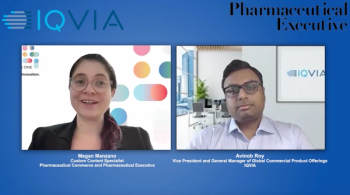
Discover how agentic AI is reshaping life sciences commercial operations.

A panel of industry leaders share key insights supporting the integration of patient-centric strategies into current and future drug development and market access efforts.

Industry stakeholders suggest how pharmaceutical companies can proactively plan for the potential implementation of a Most Favored Nation (MFN) pricing model.

Industry experts react to the developer’s role in preparing for value-based contracting, acknowledging that innovative agreements can support access when evidence is still maturing.

A panel of key opinion leaders consider how payers and manufacturers are increasingly embracing innovative contracting models that require strong value propositions, strategic planning, and significant upfront investment in data and stakeholder alignment.

Edward Ahn, CEO of MEDIPOST, Inc., reacts to the challenge of launching orphan drugs without complete evidence, particularly given their high cost and limited patient populations, and suggests strategies that can be used to address evidence gaps, enable market access, and support long-term patient benefit.

Expert panelists emphasize the importance of trusted data sources, strong payer partnerships, economic incentives, and AI-driven insights to address skepticism and support broader reimbursement and access strategies as payers balance real-world evidence with head-to-head clinical trials in their decision-making.

In response to the rising importance of real-world evidence (RWE) in showing value to payers beyond traditional clinical trials, key opinion leaders emphasize finding cost-effective approaches, considering diverse patient populations, and using AI to pinpoint which patients will benefit most from treatment.

A panel of industry leaders emphasize the importance of early engagement with payers, real-world evidence, and value-based endpoints to ensure successful access, pricing, and long-term market viability—especially in a more complex, globally integrated reimbursement landscape.

Leading stakeholders in the industry react to how evolving US policies, payer demands, and vertical integration are reshaping market access strategy, stressing the importance of early planning and the urgency of ensuring that innovative therapies are available and affordable for patients.
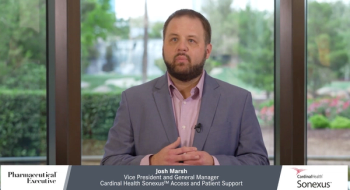
Josh Marsh, Vice President and General Manager of Cardinal Health Sonexus™ Access and Patient Support, outlines the recent shift in the patient services industry towards a hybrid hub model for in-house management and outsourced support.
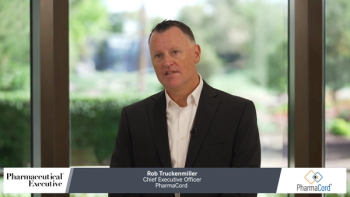
Rob Truckenmiller, CEO of PharmaCord, talks about the company’s role in patient services, trends he sees shaping patient access to healthcare in the U.S., and a recent patient-centric merger.
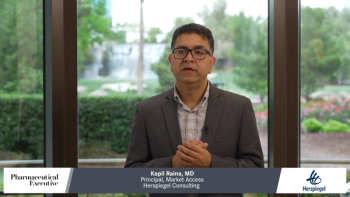
Kapil Raina, MD, Principal of Market Access at Herspiegel Consulting, talks about disconnects in the industry, how patients have easier access to healthcare information, and the exciting future of pharmaceutical manufacturing and patient care.

How the 2028 Medicare drug price negotiations will reshape market access, provider reimbursement, and patient care

Our network connects providers, health plans, and life science companies to deliver seamless care that benefits everyone

Joseph Panetta, President and CEO of Biocom California, shares his insights on biotech industry trends, policy challenges, and educational initiatives, drawing from over 25 years of leadership in California’s thriving life sciences sector.

Max Colao, CEO of OncoVerity, discusses his extensive experience in the biotech industry and shares how his company is harnessing computational biology and machine learning to develop personalized cancer treatments that aim to reshape the future of oncology care.

Elyse Blazevich discusses the Colorado Bioscience Association’s efforts to support the state’s life sciences sector by fostering partnerships, advocating for industry growth, and building a diverse talent pipeline.

In this interview, Melissa Krebs,Ph.D., CEO and founder of GelSana, shares her journey in developing cutting-edge biomaterials that could transform the $78 billion wound care market.

Dr Peter Wahl, MLA, MS, Global Head of Scientific Affairs at CorEvitas, part of the PPD clinical research business of Thermo Fisher Scientific, covers key considerations for choosing registries.
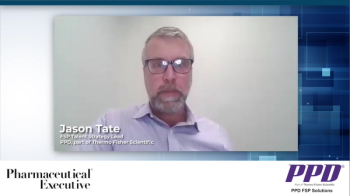
How a multipronged approach to staff recruitment can accelerate trial success.
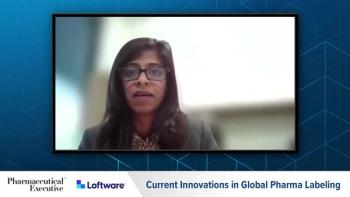
Insights into current practice of global pharma labeling, including shortcomings and potential improvements.
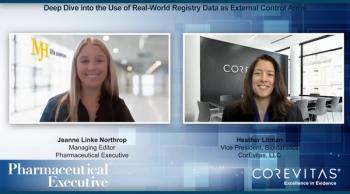
While clinical registries are a valued source of longitudinal, real-world data, registries also provide expanded options for research and advancing randomized clinical trials. Understanding when and how to use registries in these use cases is quite nuanced and mandates a targeted approach and innovative expertise. In this video, we dive deep into the expanded use of registries as external control arms in clinical trials.
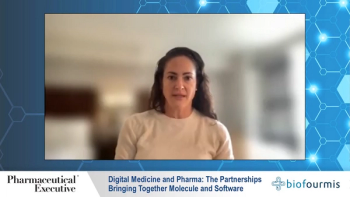
Pharmaceutical Executive, in collaboration with Biofourmis, organized a roundtable of experts from various groups to discuss how digital medicine and pharmaceuticals are changing the trajectory of what drug development and clinical care look like together, with an emphasis on partnerships within digital health.